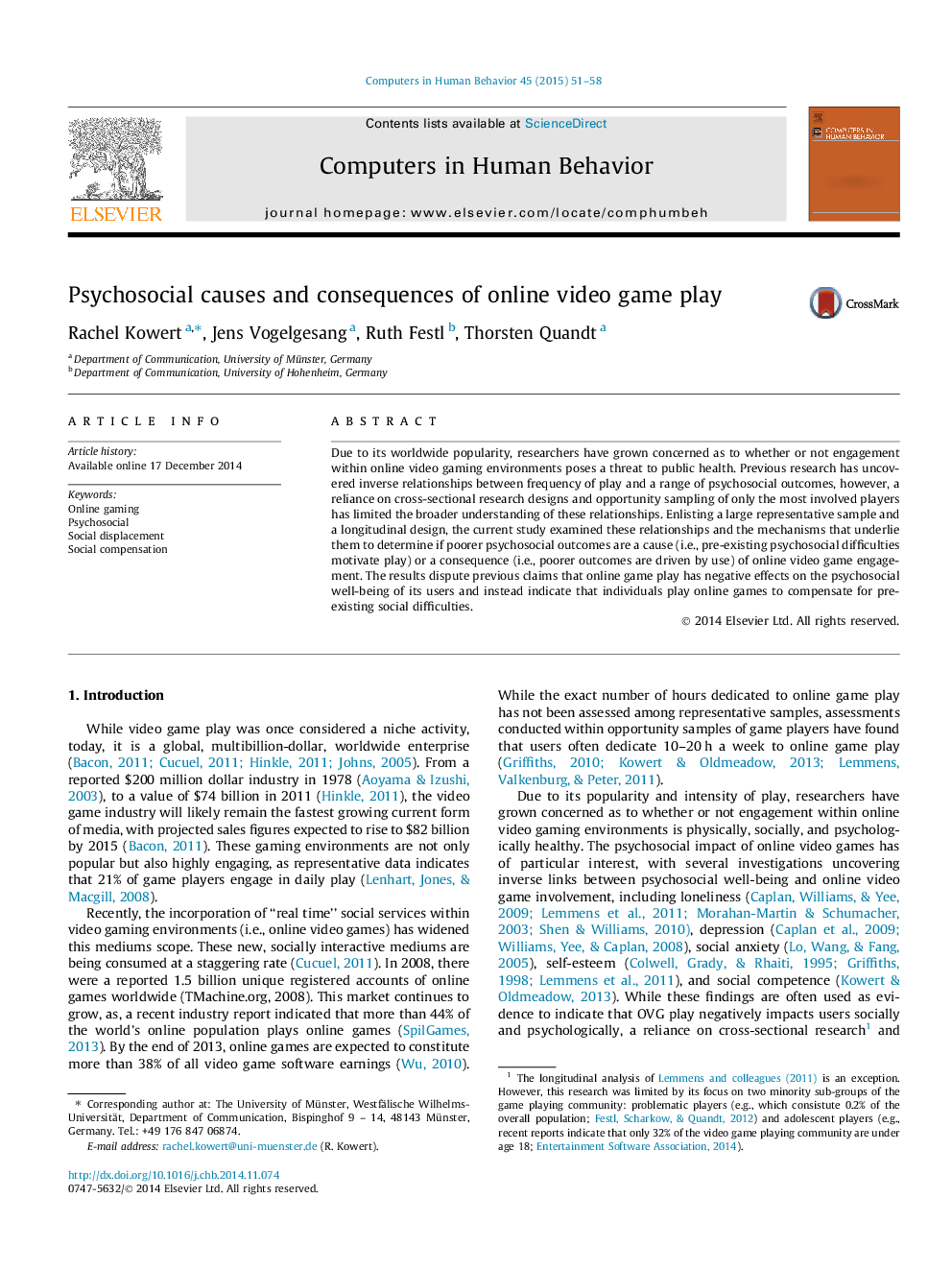| Article ID | Journal | Published Year | Pages | File Type |
|---|---|---|---|---|
| 350455 | Computers in Human Behavior | 2015 | 8 Pages |
•The psychosocial causes and consequences of online video game play were evaluated.•Over a 1- and 2-year period, evidence for social compensation processes were found.•Among young adults, online games appear to be socially compensating spaces.•No significant displacement or compensation patterns were found for adolescents.•No significant displacement or compensation patterns were found for older adults.
Due to its worldwide popularity, researchers have grown concerned as to whether or not engagement within online video gaming environments poses a threat to public health. Previous research has uncovered inverse relationships between frequency of play and a range of psychosocial outcomes, however, a reliance on cross-sectional research designs and opportunity sampling of only the most involved players has limited the broader understanding of these relationships. Enlisting a large representative sample and a longitudinal design, the current study examined these relationships and the mechanisms that underlie them to determine if poorer psychosocial outcomes are a cause (i.e., pre-existing psychosocial difficulties motivate play) or a consequence (i.e., poorer outcomes are driven by use) of online video game engagement. The results dispute previous claims that online game play has negative effects on the psychosocial well-being of its users and instead indicate that individuals play online games to compensate for pre-existing social difficulties.
